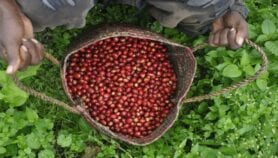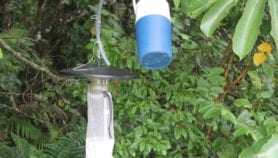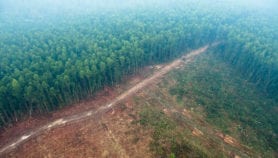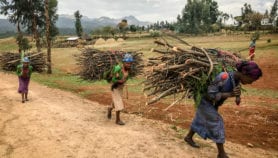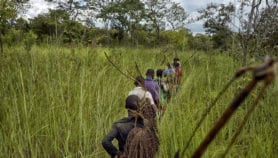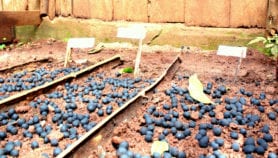By: Niagia Santuah
Send to a friend
The details you provide on this page will not be used to send unsolicited email, and will not be sold to a 3rd party. See privacy policy.
The Indian government will give US$250 million towards a fund to boost biofuel production in 15 West African countries.
Ghana’s vice president Alhaji Aliu Mahama announced the fund last week (14 November) at a workshop held in Accra, Ghana, to discuss biofuel financing in West Africa.
The fund will be set up by the Bank for Investment and Development (EBID) of the Economic Community of West African States.
Biofuel is an attractive source of energy for West African states because it can protect their economies against rising crude oil prices on the world market. It is also seen as a viable source of climate-friendly energy.
In theory the Clean Development Mechanism under the Kyoto Protocol could be used to fund biodiesel production, but West African countries lack the expertise needed to apply for the scheme.
"There is an acute shortage of expertise to develop such proposals," said Ghana’s Minister for Lands, Forestry and Mines, Dominic Fobih.
Fobih welcomed the fund, but said that procedures for developing Clean Development Mechanism proposals should still be properly studied.
The workshop was co-sponsored by EBID and the UN Conference on Trade and Development (UNCTAD).
EBID pledged to foster private-public partnerships, with support from UNCTAD, and to finance agricultural and industrial production for biofuels.
As a first step in this direction, EBID will provide US$35 million for a jatropha biodiesel project in Ghana, in conjunction with the country’s commercial banks and financial institutions.
Benin, Mali, Nigeria and Senegal, led by Ghana, have pioneered research on biofuel and jatropha plantations. Jatropha oil’s low cost and ease of cultivation make it an attractive crop for biofuel production.
But biofuel production is still a relatively young technology, and more research is needed, notably to make sure it is geared towards the needs of small farmers for whom biofuel use on a local scale — for village power or agro-processing — could be highly promising.
In addition, to be competitive on the international market, West Africa will need to find viable sources of funding to invest in plantations of between 50,000–150,000 hectares, and into processing, transport and storage facilities.
It will also have to reduce its production costs and improve its farming techniques to reduce the risk of low yields, pests and disease.



